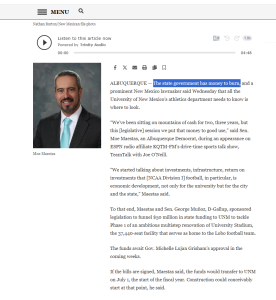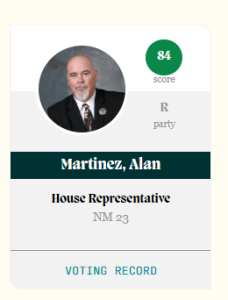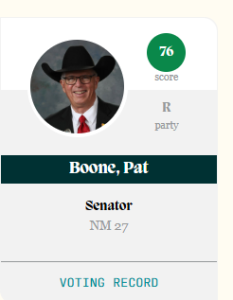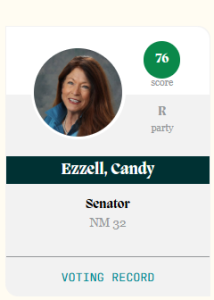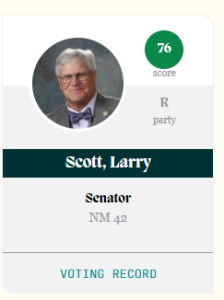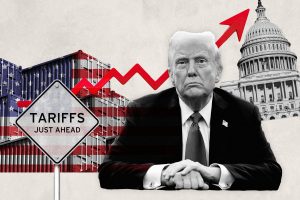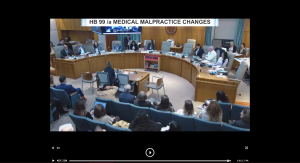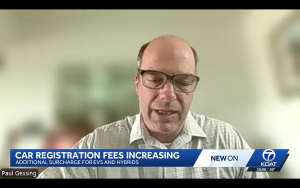As the brief 30-day legislative session heads to its conclusion in just over one week (next Thursday) a tax bill has emerged. It is Senate Bill 151 and here’s our analysis of each provision (basically a bill already introduced this session) which includes details from the Los Alamos Reporter:
• SB 12 – Physician Tax Credit: Establishes a $4,000 non-refundable income tax credit for qualified physicians to attract and retain physicians in New Mexico, addressing the state’s healthcare workforce shortage. RGF has no position on this. It will have some positive impact on doctor recruitment, but we’d prefer broader tax reductions.
• SB 36 – Quantum Facility Infrastructure Tax Credit: Creates a “refundable” tax credit (meaning it can be spending) for the development of quantum computing infrastructure, positioning New Mexico at the forefront of emerging technology sectors. The credit is capped at $50 million annually. RGF has a slightly negative view on this credit since it is “refundable” and targeted to one industry.
• SB 92 – Construction Materials Gross Receipts: Creates a new gross receipts tax (GRT) deduction for receipts from the sale of construction materials and labor used in the development of affordable multifamily residential housing projects. RGF has a slightly negative view on this credit since it is only available for so-called “affordable” projects. This deduction should be available to ALL home construction.
• SB 120 – Local Journalist Employment Tax Credit: creates a refundable tax credit (spending) for local news organizations equal to 30 percent of the company’s annual wages. The total amount that can be claimed each year is capped at $4 million. RGF opposes this kind of narrowly targeted spending.
• SB 133 – Health Equipment GRT Deduction: Creates a new gross receipts tax (GRT) deduction for receipts from the sale of certain in-office equipment and nonprescription in-office medications sold to healthcare practitioners or associations of healthcare practitioners, when the equipment or medication is used within the practitioner’s scope of practice to treat patients. RGF supports this as a means of making New Mexico more attractive as a place for doctors to practice.
Finally, the bill creates two parallel tax credits for monetary donations to licensed childcare facilities against personal income taxes and corporate income taxes, for tax years after 2026 and prior to tax year 2037. The credit equals 50 percent of the amount donated in the taxable year, capped at $500 thousand per taxpayer. Eligibility is limited to donations made to a qualifying facility or program meeting subsidy enrollment requirements, and certified by the Early Childhood Education and Care Department (ECECD). The total annual aggregate amount of the two credits that may be certified is capped at $10 million
RGF is usually not opposed to tax credits, but with the State now pouring hundreds of millions of dollars into “free” childcare, the last thing we need is a state tax credit to further subsidize this program.
• SB 151 – Corporate Income Tax Changes: The net result of this provision would be an increase in New Mexico’s economically-harmful corporate income tax. It decouples New Mexico’s corporate income tax from three components of the 2025 reconciliation bill, commonly known as the One Big Beautiful Bill Act (OBBBA). This bill decouples New Mexico from three H.R.1. provisions:
• First-year bonus depreciation,
• First-year expensing for manufacturing facilities, and
• Business interest deductions.
RGF strongly opposes this provision. The corporate income tax is the most harmful commonly applied tax. It does not generate much revenue in New Mexico relative to other state taxes ($790 million out of more than $13 billion in general fund revenue), but does tremendous economic harm.
RGF cannot support this provision and this provision alone brings the overall tax bill (SB 151) to a negative score.
ALSO, legislative analysts calculate the tax bill to be a tax hike of between $50 and $60 million annually.

